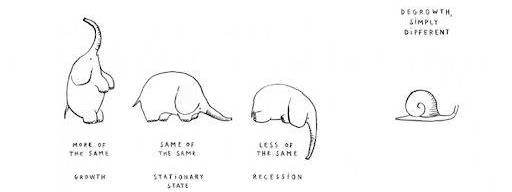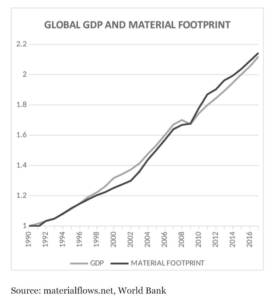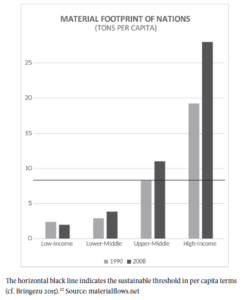Written by Jessica Isaacs
It has been about one year since the COVID-19 pandemic began. Throughout this past year, there has been a devastating loss of human life and potentially permanent harm to human health and wellbeing. Shutdowns to curb the spread of pandemic have led to millions of people left without enough money to eat, pay rent, or have their basic needs met. Black, Latinx, Indigenous, and immigrant households, households with children, and workers currently or previously employed in low-paying industries are disproportionately impacted by the health and social impacts of the pandemic. During this period of immense need, the U.S. government has spent trillions of dollars bailing out private companies all while many national, state, and local services have shrunk dramatically.
The crisis triggered by the coronavirus pandemic has exposed and reinforced the many inequities within our society, such as the ever-widening wealth gap and the lack of adequate social protections and public goods for all. It has revealed the fragility of our growth-based capitalist economy — an economy rooted in violent exploitation of both people and nature purely for the benefit of those on the top.
This past year has also revealed how eager people are to engage in meaningful systemic change and how capable communities and governments are to quickly respond to crises (some governments more than others!). This past year has seen sizable reductions in pollution, emissions, production, and consumption, and has led, for some, to less time commuting and working and more time spent with family and outdoors. We are reassessing what is necessary and what is not and we are awake, dreaming of alternative futures and better ways of life.
So, if the extractive systems of production and consumption are bad for the environment, but a pandemic-driven economic recession is bad for the people, what’s a good solution?
Degrowth
The sudden, unplanned, and chaotic downscaling and economic recession caused by COVID-19 did not prioritize well-being, justice, equity, or the environment (even if there were unintended emissions reductions). This is not degrowth and it is not what degrowth advocates are calling for. Instead:
Degrowth is a planned downscaling of resource and energy use to bring us back into balance with the natural/living world in a safe, just, and equitable way. I also like to think of it as a planned upscaling of public goods and of income, wealth, and resource redistribution, a positive reorganization of society, and a shift in our way of life.
“We must think in unprecedented ways.” – Senator Bernie Sanders
5 Steps to a Just Recovery out of COVID-19 According to Degrowth Experts
1. Abandon GDP and instead put life and wellbeing at the center of our economic systems
Degrowth challenges the prevailing capitalist notion that Gross Domestic Product (GDP) is an accurate proxy for wellbeing and that exponentially growing our economy (including through “green growth”) will automatically lead to greater social and ecological wellbeing. It isn’t and it doesn’t. If you frack oil and gas, GDP rises, regardless of any impact on human health or habitat loss. “If you grow your own food, clean your own house or care for your ageing parents, GDP says nothing. It only counts if you pay companies to do these things for you” explains degrowth advocate Jason Hickel.
What GDP and growth are good proxies for is the rate at which we plunder the Earth’s resources, our material footprint, and ecological breakdown, including: biodiversity loss and mass species extinctions, climate change, biogeochemical overload, soil depletion, ocean acidification, deforestation, desertification, flooding, and increasingly uninhabitable spaces that lead to human displacement and serious unmet needs.
It is estimated that the U.S. and other high-income nations have a material footprint four times over the sustainable threshold. It is also estimated that the U.S. economy can be downsized 65% all while improving the lives of ordinary Americans and putting less stress on the natural environment if the U.S. more fairly distributed income, wealth, and resources, invested in public goods, and crafted policies and programs that meet needs and socio-ecological goals directly.
2. Scale down material production and consumption
It is time to further reassess which parts of the economy are essential and consciously decide which sectors to grow and which to radically degrow. Let’s shift resources, funds, and labor from harmful and non-essential sectors to the sectors that will provide the most good and the least harm to human and ecological communities:
-
- Scale down ecologically-destructive and socially-unnecessary industries, such as: fossil fuels, arms, private air travel, gas-guzzling cars, animal agriculture, fast fashion, single-use plastics, the military, police, detention centers, and prisons. Cut advertising budgets and end food waste.
- Shift from private ownership to publicly-owned usership and sharing practices.
- Demand better quality products by banning planned obsolescence and calling for mandatory extended warranties and extended producer responsibilities on products. Introduce a “right to repair” and support a degrowth circular economy.
- Reclaim an economy based on producing and selling needed and useful goods and services, not one based on capital accumulation by the uber-rich.
3. Expand essential and public goods, services, and public spaces
Expand and decommodify public goods and services such as: universal healthcare, education (PreK-12, higher ed, vocational and trade programs, retraining programs), public transit, behavioral and mental health care, nutrition programs, vaccinations, child care, city parks and public lands, conservation programs, libraries, recreation centers, paid parental and medical leave, pensions and social security, affordable housing, water, internet, electricity, renewable energy, regenerative agriculture, community gardens, and composting and recycling centers to name just a few. Aim to re-localize as many of these programs as possible to build resilience. By targeting growth in these areas, our ecological community (humans included) will thrive, basic needs will be met, and quality of life will soar without requiring ever-rising incomes.
We can’t keep asking “how can we pay for that?”* Instead we must ask, “How can we not?”
(*The answer, by the way, is progressive taxes on wealth, land, and carbon and redirecting funds from now defunded harmful industries).
4. Radically re-evaluate how much and what work is necessary for a good life for all
As we scale down certain industries and grow others, we must consider a just transition for workers:
- Shorten the workweek, introduce work-sharing options, and introduce public job guarantees. Shorter workweeks — when paired with a living wage or universal basic income and expanded public goods and services — leads to a higher quality of life, more time spent on meaningful, ecologically low-impact, and care-based activities, rest, and leisure, and less needless consumption. It also leads to more equitable distribution of income.
- Roll out retraining programs to justly transition workers from destructive industries into work that is regenerative and cleaner.
- Re-prioritize essential work such as growing food and care work — caring for the natural world and for people within and outside one’s household.
5. Prioritize redistribution, justice, equity, and democracy
Justice and equity for humans and the natural world is critical to any degrowth movement. Here are some key ways to directly address inequity and injustice:
- Reduce economic and social inequalities by enforcing a minimum wage (ideally a living wage) and a maximum wage.
- Introduce a wealth/solidarity tax – extreme levels of wealth are not earned, but are hoarded and extracted from undervalued and underpaid workers and ecosystems.
- Place a hard cap, fee, and dividend on resource and energy use and waste.
- Issue an indefinite moratorium on evictions and foreclosures. Cancel unpayable and unjust debts (such as medical and student loan debts and low-income nation debts).
- Switch to a debt-free currency and shift our banking systems so that states can create and spend money on local businesses and public goods and services.
- Achieve true democracy by getting corporate money out of politics, removing corporate personhood, dismantling monopolies, engaging in media reform, transforming campaign finance laws, fostering cooperatively owned structures and unions, and collectively managing public resources. Ensure all people, especially marginalized groups, can participate in the decisions that affect their lives.
- End current forms of exploitation and make reparations for past ones within and across country borders and species lines. Extend legal personhood to the living more-than-human world.
We cannot return to business as usual.
“Normal is deadly. We don’t need to stimulate the economy. We need to build an economy that is based on protecting life.” – Activist and Writer Naomi Klein
It is time to build a just transition away from extractive and exploitative systems of production, consumption, and accumulation and towards a re-localized society that is caring, sharing, resilient, regenerative, and equitable; towards a means of existence than honors human rights and the rights of nature and the interconnectedness of all beings; and towards a life of abundance, solidarity, compassion, and joy!
“Degrowth stands for de-colonization of both lands and people and even our minds. It stands for the de-enclosure of commons, the de-commodification of public goods, and the de-intensification of work and life. It stands for the de-thingification of humans and nature, and the de-escalation of ecological crisis. Degrowth begins as a process of taking less. But in the end it opens up whole vistas of possibility.” – Author and economic anthropologist Jason Hickel
Want to learn more about degrowth and other approaches to a just, regenerative society?
Read: Jason Hickel’s “Less is More: How Degrowth Will Save the World” (available as a digital and hard copy), Re-imagining the Future After the Coronavirus Open Letter, Kate Raworth’s Doughnut Economics, and Climate Justice Alliance’s Just Transition Framework
Watch: How Degrowth will Save the World and Recovery without Growth
Email: jessica@350colorado.org if you’d like to see more conversation about this topic!
Donate to 350 Colorado to support local solutions and a just recovery out of COVID-19.




